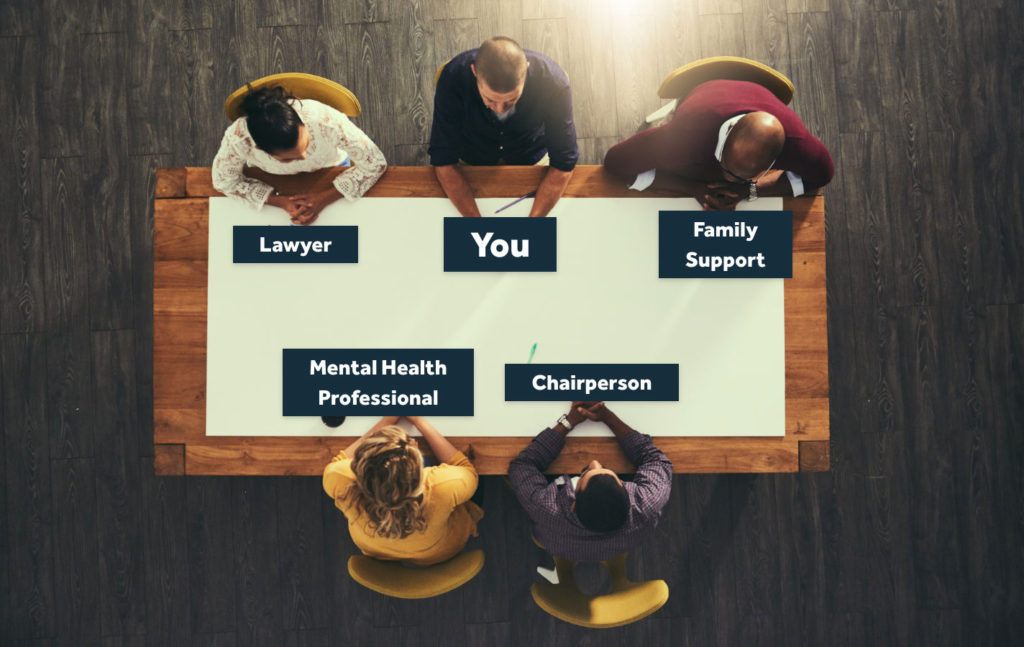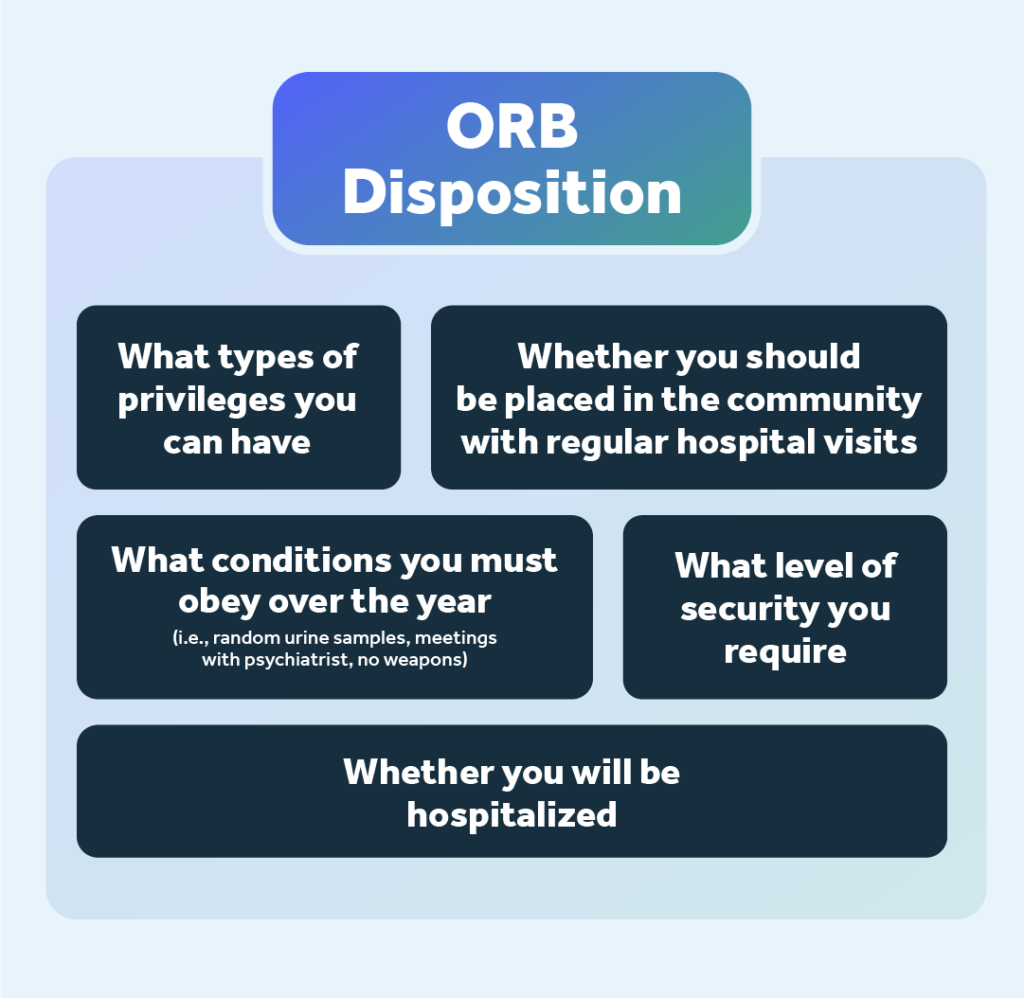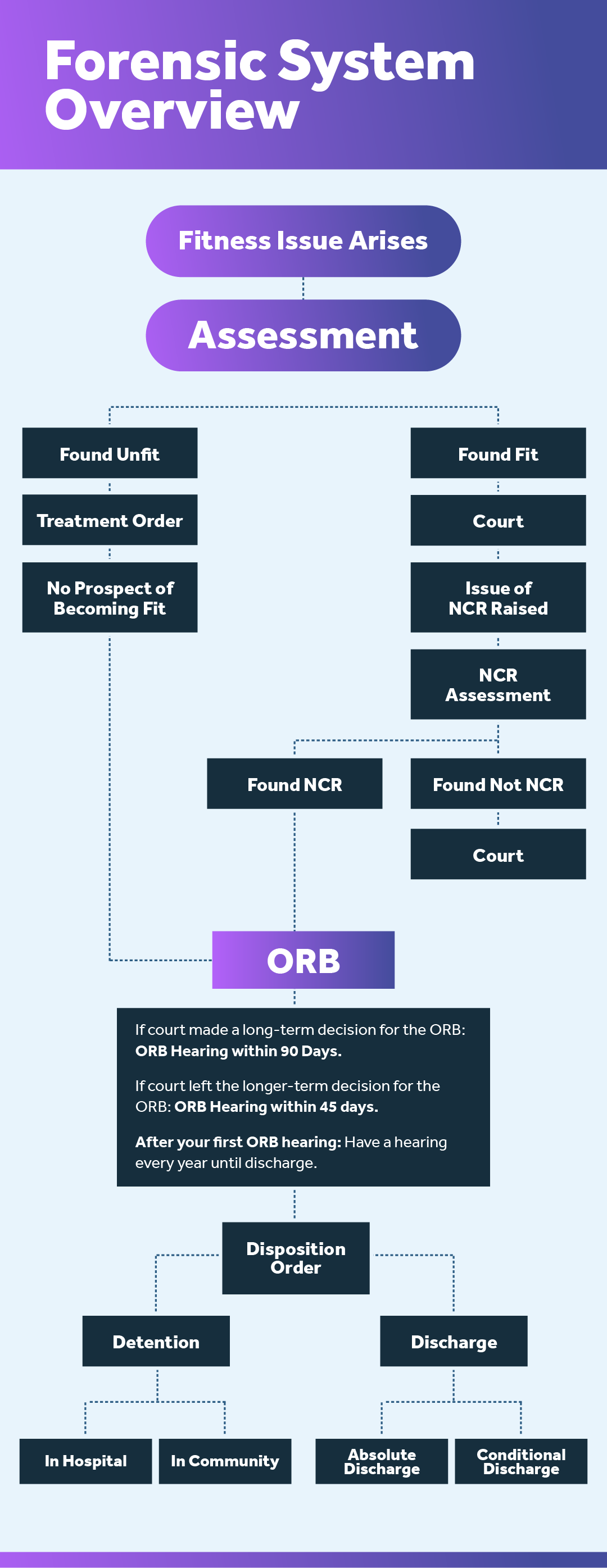Forensic Mental Health System
Ontario Review Board Hearing
ORB Hearing
- Usually takes place in a boardroom or special hearing room in a mental health hospital
- Less formal than courtroom proceedings
- You will sit in front of the ORB panel with your lawyer
- Most of the time, ORB hearings are open to the public (i.e., family, friends, and support team can attend), however, you might have to request to attend
- Panel hears evidence from you, your lawyer, your psychiatrist, and sometimes other people (e.g., family members, other specialists)
- The mental health hospital submits a report to the ORB giving your history and progress (you and your lawyer obtain a copy)

NCR and the ORB
If you have been found NCR, your ORB hearing can have one of three outcomes:
- Absolute discharge: you are not “a significant threat to the safety of the public”. This means that you are no longer under the authority of the ORB. You are free to live where and how you wish within the limits of the law
- Conditional discharge: you are no longer required to live in the hospital. However, you must follow the conditions set by the ORB
These might include:- Reporting to the hospital and giving urine samples to test for alcohol or drug use
- Continue to attend annual ORB hearings
- If you do not follow conditions you could be arrested
- Detention order: ORB believes you would be a significant threat to the public if you were released. You remain under the authority of the ORB and you will have another ORB hearing in one year
Disposition
After your hearing, the ORB will make a disposition. The disposition is a decision/order that says where the person will live, the conditions under which the accused will live, and the level of security needed.
The disposition states:
- Whether you should be placed in the community with regular hospital visits
- Whether you will be hospitalized
- What level of security do you require
- What types of privileges you can have
- What conditions you must obey over the year (i.e., random urine samples, regular visits with a case worker or psychiatrist, not carrying or owning weapons)

How does the ORB make its decisions?
Decisions are made by a majority vote. The Board considers four things:
- Are you a risk to members of the public?
- How is your mental health now? How has it been over the past year?
- How well integrated into society are you? (i.e., good connections with family/friends, could you do a job/volunteer)
- Do you have any other needs that need to be considered?
ORB has to give you the most freedom possible keeping in mind your safety, your treatment needs, and the safety of the public.
You are no longer under the authority of the ORB when:
1. You have been granted an Absolute Discharge
OR
2. You have been found fit to stand trial and returned to court

84%